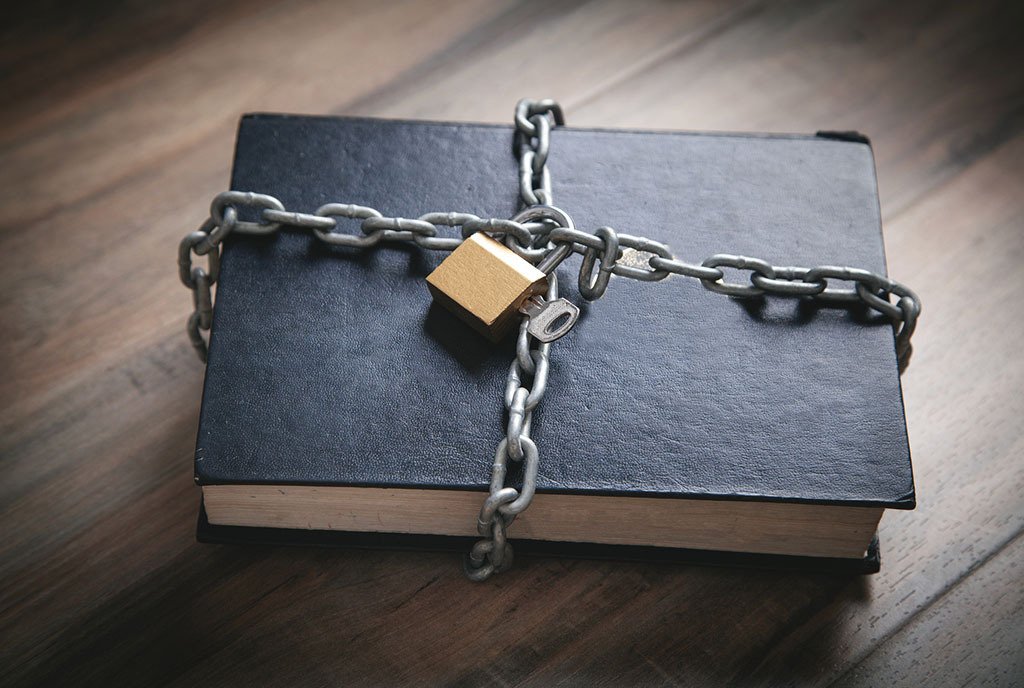
PEN America described the 2022–2023 school year as “marked to date by an escalation of book bans and censorship in classrooms and school libraries across the United States.” There were nearly 700 attempts to ban books in the first eight months of 2023 alone, as reported by NPR.
Books are being challenged that include characters, narratives, or mere mentions of race, queerness, even climate change. In June of this year, NPQ reported on a Washington Post study which found that “out of the 10 most challenged books across the county, three were by Black authors, 28 percent had characters of color or storylines that dealt with race, and six percent included both characters of color and queer characters.”
But those who initiate book bans and censorship aren’t only focused on the written material. Often, they go beyond the books and target the writers as well.
Writer Ashley Hope Pérez deals “with ongoing harassment—hate mail, ugly phone calls, defamatory messages sent to my employer,” she said. Pérez is the author of Out of Darkness, a young adult novel that, over the past two years, has become one of the most banned books in the United States.
Another writer, Julia Scheeres, wrote an op-ed in response to the push to ban her book in Journal & Courier, “Comments were predictable. ‘Absolutely disgusting,’ one woman wrote. ‘They will be teaching this type of trash in every school across our country,’ someone else opined.” Scheeres’ book Jesus Land, a memoir that details her upbringing in rural Indiana, has been targeted after an anonymous administrator on a Facebook group had posted passages from the book that included a forced sexual encounter between two teenagers—and the group was calling for the book to be removed from school libraries. The book has since been banned in at least seven states, according to Scheeres.
Though Banned Books Week happens the first week of October, NPQ wanted to keep the conversation going by talking with the two writers about their experiences being banned and what it’s like writing in a climate that wants to see them—and many other writers like them—silenced.
“I also wanted to highlight the resilience and resourcefulness of young people like my main characters, the kind of people whose stories often get pushed to the margins of history.”
One of the Most Challenged Books
When it comes to the numbers, Pérez’s novel Out of Darkness is number 10 on the American Library Association’s (ALA) “Top 13 Most Challenged Books” with 50 challenges in the year 2022. Pérez described Out of Darkness to NPQ as “a historical novel about family, love, and connection in difficult times.” The novel is set in New London, TX, in 1937, “where a school explosion killed nearly 300 people, most of them children,” Pérez said. “I take that event as a backdrop for a fictional love story between a Mexican American girl who is new to the community and a Black boy who helps her navigate the town’s color lines.”
Pérez grew up near the site of the explosion, a tragedy that survivors kept silent about for decades out of shame and fear. “That silence was a source of terrible pain,” she said, “and many who survived blamed themselves for others’ deaths. I wanted to bring the story of the explosion to a wider audience, and I also wanted to highlight the resilience and resourcefulness of young people like my main characters, the kind of people whose stories often get pushed to the margins of history.”
The book itself is now getting pushed to the margins, becoming harder for kids to read due to constant scrutiny by those filing book bans.
Politics, Not What’s Best for Kids
The National Coalition Against Censorship (NCAC) has said that books challenged in schools “tend to contain offensive language, including profanity, or have characters or themes that reference sex, violence, death, suicide, LGBTQIA+ or BIPOC issues, or unflattering histories of the United States.” A parent or individual can file a complaint to launch the review process, which differs from school district to school district.
Like Jesus Land, Out of Darkness has been challenged with claims of sexual explicitness and depictions of abuse, according to the ALA. Both books also center characters of color. Scheeres’ memoir is about “growing up with my same-age Black brother in rural Indiana. It recounts our struggle to find acceptance in a racist yet highly religious landscape,” she told NPQ.
Though Pérez’s book was published in 2015, it was challenged for the first time in 2021, caught up in a wave of challenges that gained momentum after measures supported by Republican lawmakers like Florida Governor Ron DeSantis. Such measures have made it easy for parents and others to challenge books. “Conservative groups like ‘Moms for Liberty’—an extremist group that militates against the liberty to read—pass their lists around online,” Scheeres said.
Sign up for our free newsletters
Subscribe to NPQ's newsletters to have our top stories delivered directly to your inbox.
By signing up, you agree to our privacy policy and terms of use, and to receive messages from NPQ and our partners.
“They can’t abide outspoken women who buck the system.”
The challenges to Jesus Land over explicitness are an oversimplification, according to the writer. “There are a few brief sexual scenes in Jesus Land that in no way ‘glorify’ teen sex—a smart reader will tell the difference between coerced sex and consensual sex,” Scheeres said.
According to the NCAC, “In most cases, the critics have not read the work in question, or have only read select passages out of context.” That lines up with the revelation that less than a dozen individuals were responsible for the majority of book bans between 2021–2022.
“The fact that Out of Darkness was in schools for half a decade without a single complaint is a key indication that this is about politics, not about parental concerns or what’s best for kids,” Pérez said. “None of these folks were worried about Out of Darkness until right-wing groups told them that they should be. In one case in Texas, the parent who got my book restricted had kids who had already graduated from the high school. The entire time her kids were in high school, my book was in the library. She didn’t have a problem with it then.”
“I think the thing that most rankles conservatives is that the White, female, Christian protagonist is noticing and questioning the hypocrisy and racism around her instead of being complicit in it,” Scheeres said. “They can’t abide outspoken women who buck the system.”
Bans Can Be Devastating
While writers have resources when their books are banned or challenged—including an “Action Kit” from the NCAC—discovering one’s book is on a disputed list is an upsetting experience. Pérez described the toll it has taken, not only on her but on others around her: “Sometimes if haters can’t find my number or email, they just send ugly messages to people in my workplace. My kids see me fall apart (and pull myself back together) with each new ban.”
“Young people can still discover the books and ideas that right-wing politicians and their followers have tried to erase from their world.”
Writers of color, writers who are queer, and disabled writers already make significantly less money than other writers, and are often given the message from the publishing industry that their stories don’t matter. Banning these stories, according to CNN, “may drive authors not to write at all, or to write something other than the subjects they’re passionate about all to ensure they can make a living.”
Pérez called book banning “devastating for writers,” reflecting, “Many rely on school visits for income. Since my first book came out in 2011, I did school visits and events regularly, even during the pandemic, yet I have not received a single school invitation since these bans of Out of Darkness began.” Pérez described herself as “fortunate to have a day job, but not all writers have that protection.”
Still, Scheeres has written two other books since Jesus Land, most recently Listen, World! How the Intrepid Elsie Robinson Became America’s Most-Read Woman, co-written with Allison Gilbert, about the nationally syndicated columnist. Scheeres is active in organizations that defend free speech, like PEN America. And Pérez is editing a book called Banned Together, an anthology of banned writers and allies, publishing in 2025.
“The goal of the collection is to ensure that young people can still discover the books and ideas that right-wing politicians and their followers have tried to erase from their world. The anthology will bring together personal essays, fiction, poetry, graphic narratives, and other genres to explore book banning and its costs from many angles,” Pérez said. “Above all, the goal is to empower teens to seek out what is missing and defend their right to learn, grow, and read widely.”












